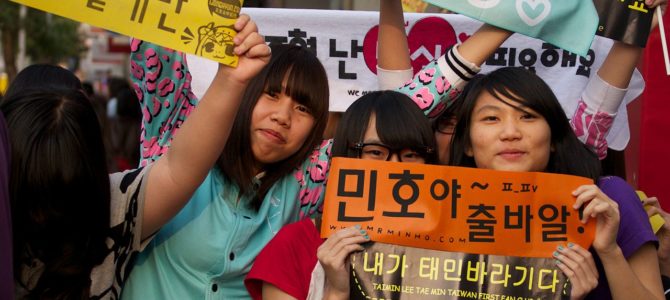North Korean dictator Kim Jong Un is a constant fixture in world news. Yet, this summer he has been making the news for something unexpected — his crackdown on youth culture. Recent decades have seen elements of South Korean culture seeping through the Chinese border via the black market. And according to Kim Jong Un, South Korean slang and fashion borrowed from K-pop and K-dramas harm “the new generation’s ideological mind-set.” The regimes’ reaction to harmless South Korean terms exposes a weakness that the free world should exploit.
Rather than use the cute nickname “oppa” to describe a boyfriend, North Korean girls are now instructed by the government to use the term “male comrade.” Public displays of affection are also considered a sign of foreign influence. And the haircuts and fashion young people adopt are under scrutiny. Those who violate state-imposed rules regarding these matters are supposedly the “sworn enemy of the revolution.”
As the North Korean regime throws wet blankets on relationships and mandates bland socialist streetwear, we must ask, why does the North Korean regime care about any of this?
The answer is simple: control.
The fact that so many young North Koreans are taking inspiration from South Koreans’ way of dressing, speaking, and acting implies two things. Firstly, that young North Koreans are less afraid to defy the stodgy norms of the regime. And more importantly, that a significant number of North Koreans are exposed to South Korean media.
Although consuming any content not approved by the regime is forbidden, South Korean and international movies, music, and TV shows are smuggled into the country through USB drives and DVDs sold on the black market.
With their heartthrob characters and far-fetched storylines, K-drama plots rarely include overthrowing communist regimes. But they still pose a threat to Kim Jong Un, and for good reason. The most dangerous thing about K-dramas and other international media is that that they expose the regime’s lies.
The North Korean people are fed propaganda constantly. They are raised to believe that the United States and Japan are their enemies, that the South Korean government is evil, and that their own standard of living (thanks to their government) is comparatively good. Yet, exposure to international news and entertainment undermines these claims.
Entertainment is fictionalized, but the skyscrapers, streets full of cars, and the lifestyles of average families portrayed in foreign media paint a different picture of what life can look like in the free world. In contrast, North Korea is currently suffering from a food shortage.
A well-known regime-approved song in North Korea proclaims, “Our home is the bosom of the party … We have nothing to envy in the world.” The more that North Koreans are exposed to the outside world, the more they will know what a lie they have been sold.
North Korean defectors frequently cite access to outside information as what inspired them to flee. North Korean defector Yeonmi Park claims she “knew something was wrong” with her government after watching “Titanic.”
Information provided by outside media — both news and entertainment — empowers the North Korean people, and undermines Kim Jong Un’s control. So much so that some human rights activists believe that the North Korean regime would fall if its people had unhindered access to information.
The real hope for change lies with the North Korean people themselves. Decades of attempted North-South dialogue have failed, yet the fashion statements of young North Koreans have struck a chord with the regime. The leaders of this “socialist paradise” are threatened by acts of individual expression and what those acts represent—freedom of thought.
Expanding North Koreans’ access to information is critical because change must ultimately come from inside North Korea. Efforts like the recent anti-leaflet law passed in South Korea — which is meant to prevent NGOs and activists from sending balloons with leaflets and USB drives with news, Bibles, or entertainment over the border into North Korea—are a step backward.
The United States and other free countries ought to take measurable steps to expand North Koreans’ access to information. The U.S. Agency for Global Media should prioritize projects related to disseminating information in North Korea and work to ensure that their content is relevant to North Korean audiences. NGOs that send short-wave radio messages and news into North Korea and aid defectors deserve our robust support.
When North Koreans are able to access international media, it gives them a window to the rest of the world, and the truth just might set them free.









